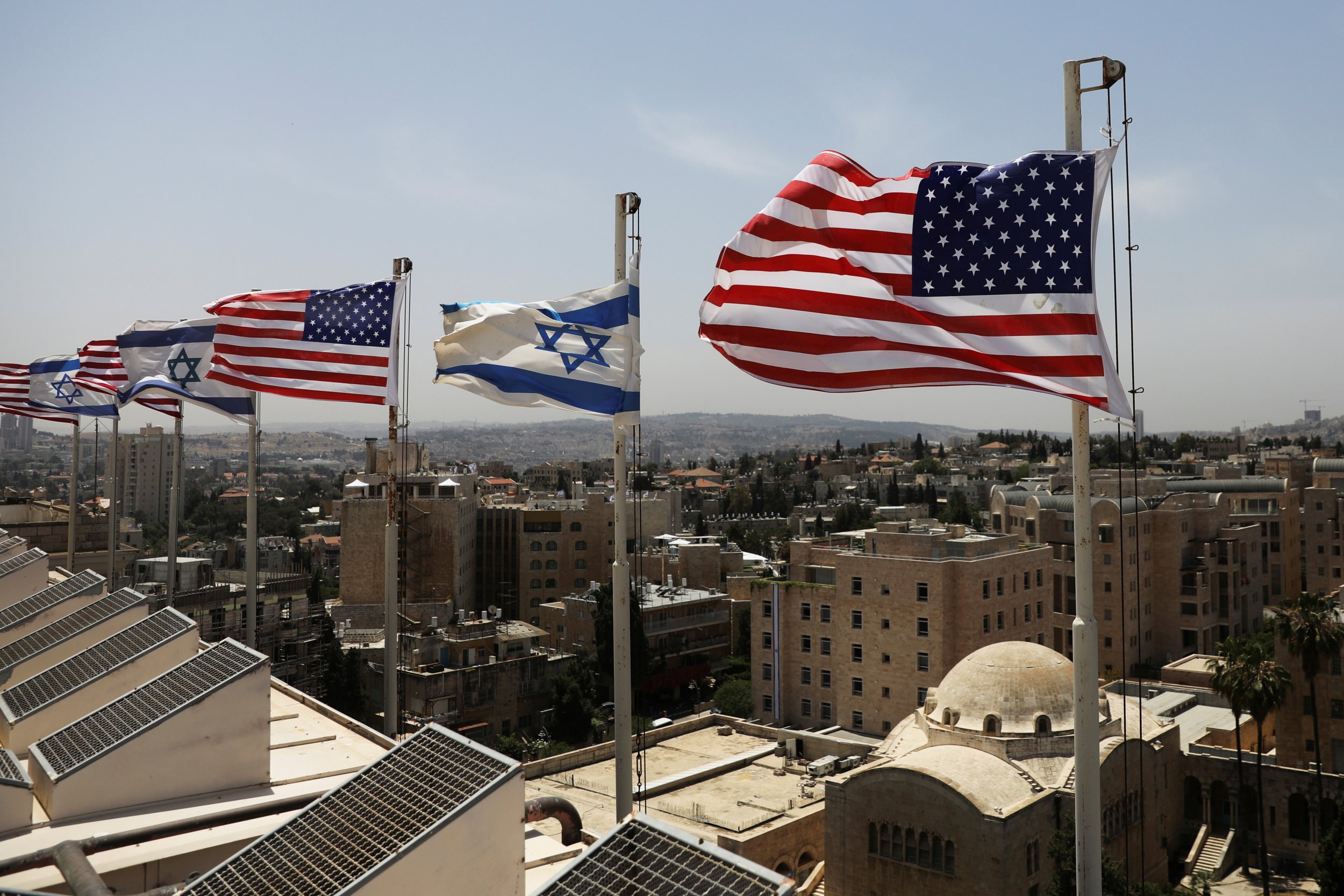
Since its founding in 1948, only five U.S. presidents have visited Israel. The first was Richard Nixon in 1974 and Donald Trump will be the sixth. The infrequency of these events alone guarantees that the Trump trip will garner high publicity and will be enthusiastically received by Israelis.
The image of an American president at the Western Wall — directly rebuking UNESCO's rejection of a Jewish tie to the site — and his message of unequivocal commitment to Israel's security will also be deeply appreciated. Beyond optics and messaging, though, fateful issues will also be addressed during the President Trump's stay.
One of these is the question of reanimating peace talks with the Palestinians. President Barack Obama tried for eight years, unsuccessfully, to bring the Palestinians back to the negotiating table. Israel's position was and remains: we want direct talks now with no preconditions. In addition, Israel looks forward to the support and participation of our Arab neighbours, Jordan and Egypt, in the peace process as well as Sunni states in the Gulf.
If in the past we believed that peace with the Palestinians would bring about peace with the Arab world, we now hope that the reverse will be true—that peace with Arab states will facilitate peace with the Palestinians. We welcome President Trump's affirmation that no solution will be imposed on the parties and that Israelis and Palestinians must find a mutually acceptable agreement. The president's contributions to that process will, of course, be valued.
Another issue heading the president's agenda will be Iran. Israel shares President Trump's deep reservations about the 2015 Iran deal and his determination to address its flaws as well as his commitment to resist continuing Iranian aggression throughout our region. Among the steps to be considered will be ways to connect the agreement with Iran to its abominable behavior.
Iran is the world's largest state sponsor of terror, complicit in the murder of half a million Syrians, and openly declares its goal of destroying Israel. Also to be discussed are ways both Israel and the United States can counter the threats that will arise with the deal's expiration, when Iran will have both the means and the legitimacy to produce massive amounts of weapons-grade uranium.
Read more: Israel to deploy 10,000 police for Donald Trump visit
Along with this crucial matters, the president and his Israeli hosts will be talking about concrete projects. Prime Minister Benjamin Netanyahu and Finance Minister Moshe Kahlon have responded to the request of the White House to promote programs designed to materially improve the Palestinian economy and quality of life. To this end, I have implemented a plan to significantly reduce the waiting time for Palestinians crossing the Jordan river at the Allenby Bridge. This is the largest crossing into the West Bank, used by 2.25 million people a year who can spend up to six hours waiting to cross. This could save millions of work hours which can be used to energise the Palestinian economy. These efforts, Israel and the United States believe, can generate the conditions conducive to the diplomatic progress, leading—optimally—to a secure and lasting peace.
President Trump and his Israeli hosts will address the spectrum of common threats across the Middle East. These include ISIS and other jihadist organisations, and the instability created by the unraveling of Syria and Iraq. They will review ways in which the two allies can strengthen security for other significant pro-American states such as Jordan and Egypt. Again, the reassertion of American military power in the region, demonstrated by the recent U.S. missile strike against Syria, is seen in Israel—and not only in Israel—as strengthening our common hand.
In contrast to his predecessor, who in his first trip to the Middle East conspicuously skipped over Israel, President Trump is coming to see us on his first foreign sojourn. He is also flying to Israel directly from Saudi Arabia, sending a powerful message of new diplomatic and strategic realities in the Middle East. The gesture is not lost on Israelis. We live in the world's most violent neighbourhood and the personal reassurances of the leader of the world's most powerful nation and our paramount ally are deeply appreciated.
Michael Oren is Israel's deputy minister for diplomacy in the Prime Minister's Office, and a Member of Knesset from the Kulanu Party.
Uncommon Knowledge
Newsweek is committed to challenging conventional wisdom and finding connections in the search for common ground.
Newsweek is committed to challenging conventional wisdom and finding connections in the search for common ground.
About the writer
To read how Newsweek uses AI as a newsroom tool, Click here.








